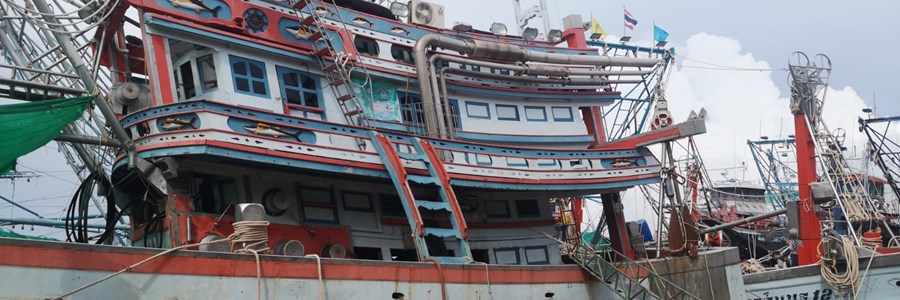No fish products made with forced labour on the EU market

Globally, an estimated 27.6 million people are in forced labour, in many industries and in every continent. In order to tackle this problem, the Commission has presented a Regulation to prohibit products manufactured in violation of human and workers' rights on the EU market, including seafood [1]. The social partners for sea fisheries, ETF and Europeche, very much welcome this effort, in their view long overdue since the problem has been brought to the attention of EU authorities a long time ago by the sector. The social partners adopted in their meeting of 30 January a joint resolution addressing the specific aspects relating to the fishing sector. The sector will closely follow the legislative process and will provide feedback and contribution to put in place a system that is clear, fit-for-purpose and effective in banning the trade of fish products deriving from forced labour.
The Commission proposal for a regulation prohibiting products made with forced labor on the Union market is a big step forward to tackle undignified working conditions globally. National competent authorities will have a key role in the investigation and the enforcement of the ban. In this context, the social partners believe it necessary to set up a collaborative effort from all the interested parties who must be able to report proven cases of situations of forced labor to the authorities. The Social partners are in a privileged position to assist European, national and ILO officials through their network of internationally recognized inspectors and are keen to collaborate.
The social partners stress that the Regulation should take into account also fish products produced in the EU and traded within or outside the European Union. Besides, a particular difficult aspect of the implementation, which will therefore need particular attention, is that forced labor is part of the manufacturing process and, according to the Commission, does not leave any trace on the product. In addition, to be concretely effective, it will need to work hand-in-hand with the IUU Regulation, which is the instrument to tackle imports in the EU of fish caught illegally.
Social partners concluded: “European consumers must be able to buy only products obtained in an ethical and sustainable way. Any form of undignified work is contrary to the values of the EU Treaties and forced labor is expressly prohibited by EU Charter of Fundamental Rights.”
- Joint resolution on forced labour -
ENDS
For further information, please contact:
Daniel Voces, Europêche Managing Director (+32.2.230.48.48 or daniel.voces@europeche.org)
Andrea Albertazzi, ETF Fisheries Policy Officer (+32.470.93.05.89 or a.albertazzi@etf-europe.org)
Sources: Europêche/ETF